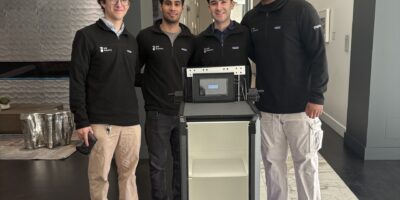In a nod to internet culture Tesla CEO Elon Musk announced that “All Our Patent Are Belong To You” in a recent blog post. In summary, Tesla would no longer be enforcing their patents.
Patents have been around for hundreds of years. Traditional thinking states that they provide incentive for an inventor to invent new technologies by granting them a period of exclusivity, and then releasing it to the public domain after 20 or so years.
Recently the value of patents has been degrading. Some companies such as Ballard Power Systems choose not to get patents at all. They believe that they can maintain enough secrecy around their innovations that they can hold onto a period of exclusivity for longer than the 20 years offered by a patent.
Other companies take a more open route to their innovations. For example, the open source movement recently relies upon a community to improve on existing innovations (usually in programming), to further advancement of a technology.
Tesla has slightly different reasoning for choosing not to enforce patents. In his blog post, Musk states “Our true competition is not the small trickle of non-Tesla electric cars being produced, but rather the enormous flood of gasoline cars pouring out of the world’s factories every day.”
By providing electric car technologies to competitors, Musk sees no loss of exclusivity, and therefore no reason to enforce patents. At first glance it appears to be a company making an altruistic decision because they will not lose anything, and only gain public perception points. Upon further analysis, the move creates many advantages for Musk, Tesla owners, and Tesla cars.
Musk is currently planning to create the Gigafactory, the world’s largest battery manufacturing facility. When complete, the Gigafactory will double the world’s output of lithium-ion batteries. Musk’s plan is to reduce cost of batteries by 30%, primarily by increasing efficiencies through scale. The batteries will initially be used for a more economical Tesla electric car, and for solar energy storage through one of Musk’s other companies, SolarCity.
But there are further opportunities for the world’s largest battery manufacturer: if electric cars were to become more popular, Tesla (and their partner company Panasonic) would be in the best position of any company in the world to meet the demand for high capacity batteries. The potential for battery supply could be huge.
Tesla owners also stand to benefit from the release of Tesla’s patents. Currently there are 97 supercharging stations across North America. While a typical 220V wall charger will charge the battery overnight, a supercharger uses DC power to charge a car in as little as 20 minutes. These superchargers have allowed Tesla owners to push past range limitations, and adventure into the world of long road trips.
There are other options for fast charging provided by numerous companies external to Tesla. Each charging station has different standards for plugs. One Tesla owner I talked to said she had to carry around four different adapters to ensure she can recharge when needed. By releasing the patented charger port for Tesla, other companies can provide the Tesla adapter, and Tesla owners will have even more choices for regular and super charging wherever they may need to go.
Despite the release of its patents, Tesla still has a competitive advantage over any electric car maker. Patents disclose how to make individual components of the car, but there are no patents for how everything works together. Tesla’s legendary attention for detail in the whole car experience has led it to receive numerous rankings of the best overall car of the year. Company culture and that ability to continually innovate will keep Tesla cars on the top of the market for the near future.




Leave a Reply